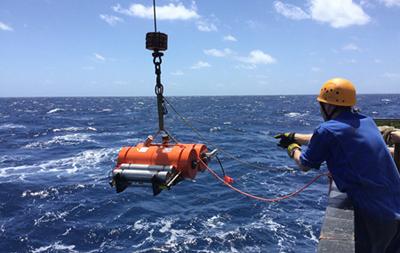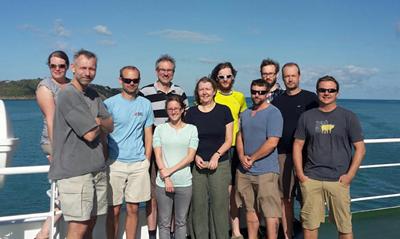Volcanic research in the Antilles

Professor Tim Henstock from Ocean and Earth Science is part of a research experiment led by Dr Jenny Collier from Imperial, in the Antilles to understand how water within a plate that is being recycled affects melting and the formation of volcanoes. This month, instruments have been deployed from the RRS James Cook will sit on the seabed until May 2017, recording signals from earthquakes around the world. These signals will be analysed to show the pattern of melting in the mantle that forms the volcanic islands in the region, as well as to identify where earthquakes occur within the Antilles region.
When plates are subducted - pushed down from the Earth's surface back into the deeper mantle - melting occurs within the shallowest 100km of the Earth, reaching the surface in sets of volcanic islands called arcs. It is well-known that water can affect this process, but recent studies in the Atlantic suggest that the Atlantic plate has a particularly high and very variable water content. The VoiLA (Volatiles in the Lesser Antilles) project is studying the way that variations in the water stored within the Atlantic plate affect the Antilles arc where the Atlantic is subducted beneath the Caribbean plate. The project includes geophysicists, geochemists, petrologists, and computer modellers to investigate different aspects of this problem. This represents a newly recognised water cycle where the oceans, the solid Earth, and the atmosphere all interact.

On board the RRS James Cook scientists from Imperial, Liverpool, Southampton and Durham have been working with colleagues from Germany and the US to deploy ocean bottom seismometers.
These are sensitive instruments that record vibrations caused by earthquakes - either small ones nearby or larger ones around the world. They will be recovered in 2017 at the same time as an experiment to measure how much water is present within different parts of the Atlantic plate.
The VoiLA project is funded by the Natural Environment Research Council and involves scientists from the Universities of Durham, Bristol, Imperial, Leeds, Liverpool and Southampton in the UK as well as collaborators from Germany and the Antilles. For more details see http://www.voila.ac.uk